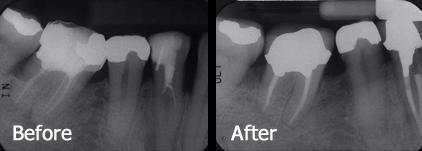The structure of our teeth is labelled in two segments; one the upper visible part known as crown and the lower part inside the gum known as root. The Root Canal Treatment is related with the treatment of the portion of the teeth that is inside the gum. Also, it involves treatment or removal of the tissues and nerves present under the infected root.
The soft dental pulps are first infected due to bacterial effect or decay, which turn dangerous and infectious if not treated for long term. The infection spreads towards the root canal and destroys the sensations of the tooth. There are some FAQs, which you need to know in advance to prevent such disaster.
When the Root Canal Treatment needs to be done?
The symptoms of infectious root are plenty in number, but most of them do not turn out to be the appropriate symptom based on which one should undergo this specific treatment. However, while you feel pain or face problem while chewing, don’t delay, visit to the nearest dental clinic for consultation and diagnosis.

- You may feel terrible pain while chewing food
- Your teeth with abnormally respond to the cold or hot food and beverages
- Your tooth sensitivity will be extreme
- The pain will lead to severe head ache or shoulder ache
- You may face sleepless nights due to wriggling pain
- Pain killers will show ineffectiveness during the pain
Whom to approach?
You may visit your family dentist or local clinic, but ultimately for Root Canal Treatment you will require to visit an Endodontist. An endodontic specialist is the special dentist who deals with root canal therapy.
Will it be a painful treatment?
With the advancement of techniques and medical processes, the Root Canal Treatments have become easy and less time consuming. The pain will certainly be there, but the intensity of the pain would be very less. You may also ask for sleep dentistry if you have acute dental phobia.
These are few facts that one should know well to identify the symptoms and treatment process.



Leave a Comment